|
Genres, Themes, Actors, and Directors:
- Alan Bates Films
- Bette Midler Films
- Downward Spiral
- Fredric Forrest Films
- Harry Dean Stanton Films
- Singers
Response to Peary’s Review:
Peary’s strongly worded review of this film — which chronicles “the last days in the life of a fictional rock superstar… patterned on the ill-fated Janis Joplin” — put me off from watching it for years. He opens by writing, “Some day a money-mad producer will make a film about the last days of John Belushi; it will be about as unenjoyable as this film”, and later he adds that “this film is for masochists only”. He writes that “it’s hard to watch one awful thing after another happen to Midler: not only is she self-destructive, but everyone she trusts lets her down, walks out on her, or exploits her.” He posits that “the movie should have been about an hour shorter,” but since “the filmmakers weren’t satisfied having individuals hurt Midler just once”, they “bring them back to hurt her again”. He concedes that “Midler gives a great performance and does a terrific job singing rock songs (as well as the haunting title ballad),” but has nothing else positive to say.
While I’m in agreement (of course) that this film offers up a deeply distressing narrative — it’s not one to watch when you’re in the mood for something light-hearted — I disagree with Peary’s framing. Midler’s character — a “vulnerable, burned-out singer who is loved by her fans but suffers loneliness because she hasn’t a man to love and protect her”, and thus “drinks heavily, takes too many drugs, and picks up men” — is clearly a complex individual who makes life challenging for those around her. The moment she first speaks harshly to Forrest is truly shocking:
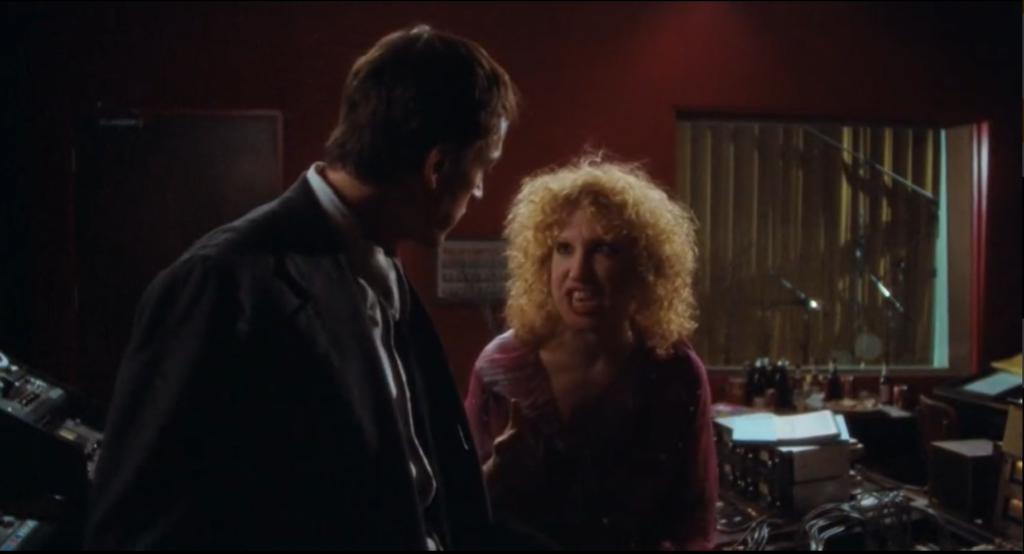
She causes him to flee in (rightful) self-preservation to a nearby male-only bath-house, which Midler enters without hesitation:
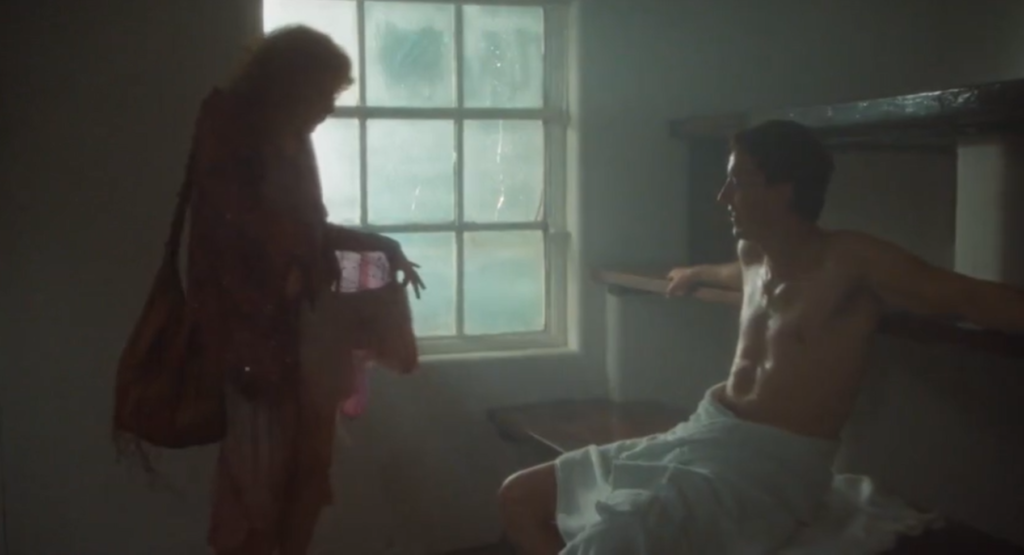
The Rose’s life is shown as an endless and exhausting push and pull between her tentative acceptance of love and joy, and her fears that she’s not worthy, thus leading her to make bad or misguided choices time and again. Underlying all is her seriously dysfunctional and co-dependent relationship with short-sighted Bates, who doesn’t seem to realize that all humans need periods of rest and recovery to stay functional and (ahem) money-generating.

Forrest, meanwhile, is an admirably complex character — someone who is living out his own secret life of rebellion, and has “hangs-ups of his own”.
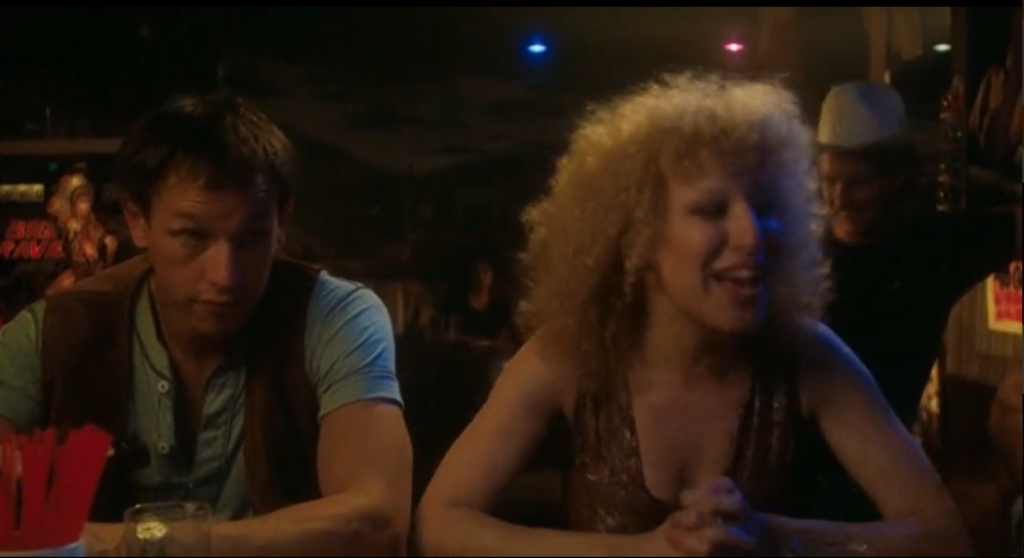
Thankfully, David Keith’s kind soldier-turned-bodyguard:
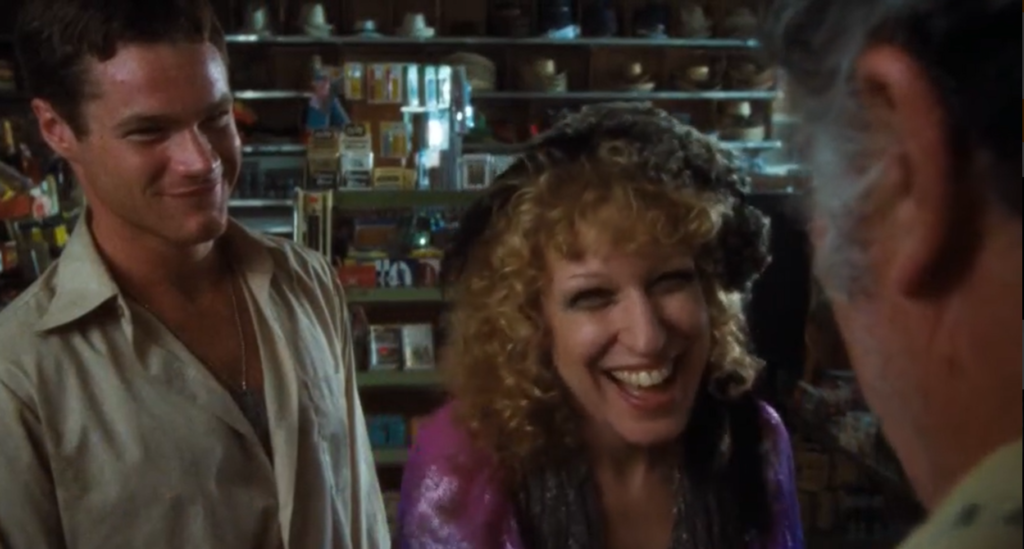
… serves as welcome relief from the litany of troubled and/or malicious men Midler encounters — including Harry Dean Stanton in a bit role early on as a mean-spirited musician.
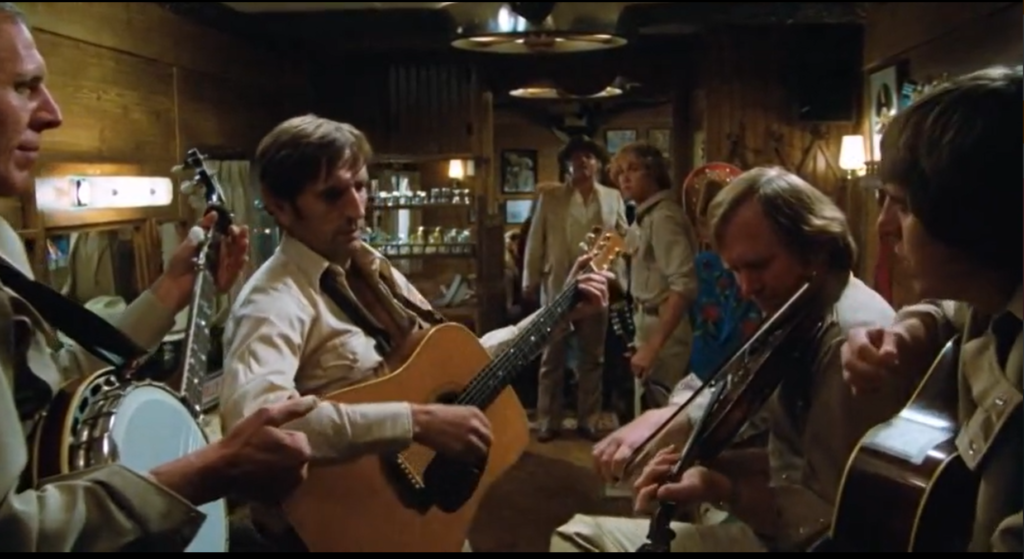
Peary also neglects to discuss how beautifully filmed this picture is (especially evident in Blu-Ray). Director Mark Rydell, working with DP Vilmos Zsigmond, presents a vibrantly saturated world of concert halls, bars, and various other locales, including Midler’s economically depressed home-town.
Meanwhile, Midler’s performance really is spectacular: her Oscar nomination was deserved, and it’s too bad she never had a chance to shine like this (cinematically-speaking) again. She plays every single scene she’s in (which is many or most) as though she’s living out the Rose’s heartbreak, exhaustion, insecurity, and exuberance in real-time. It’s astonishing how electric she is on stage (it makes sense her fans adore her), and how easily she slips into realistic despair. While not all scenes work as well as others, the arc of this story coheres just fine — and I disagree with Peary that it should have been an hour shorter.
Redeeming Qualities and Moments:
- Bette Midler as the Rose (nominated as one of the Best Actresses of the Year in Peary’s Alternate Oscars)
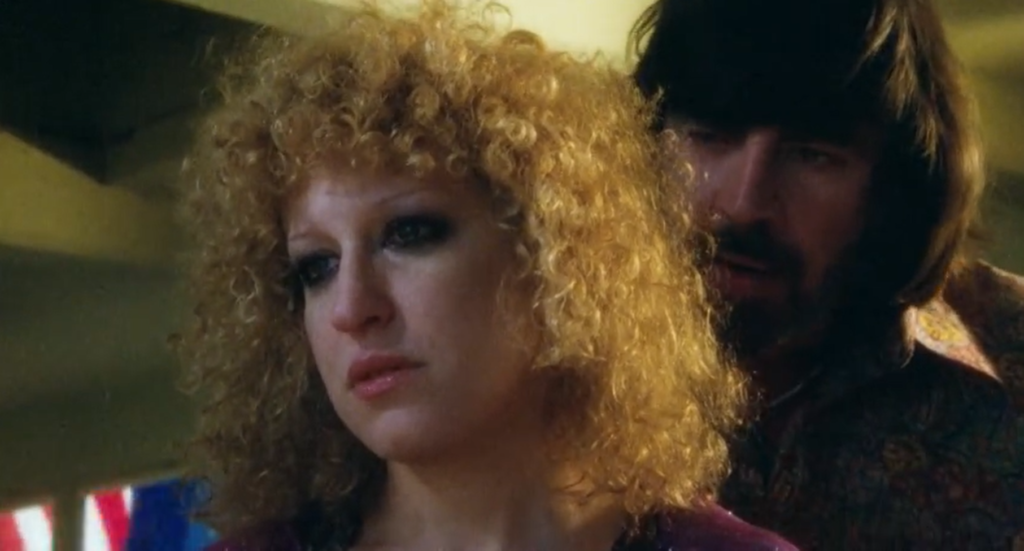
- Fredric Forrest as Dyer
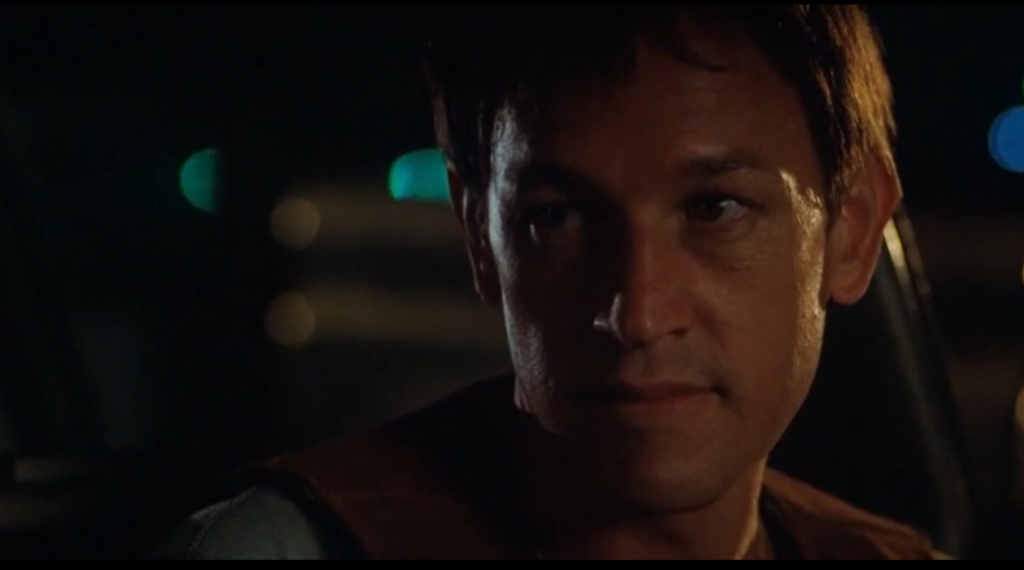
- David Keith as Mal
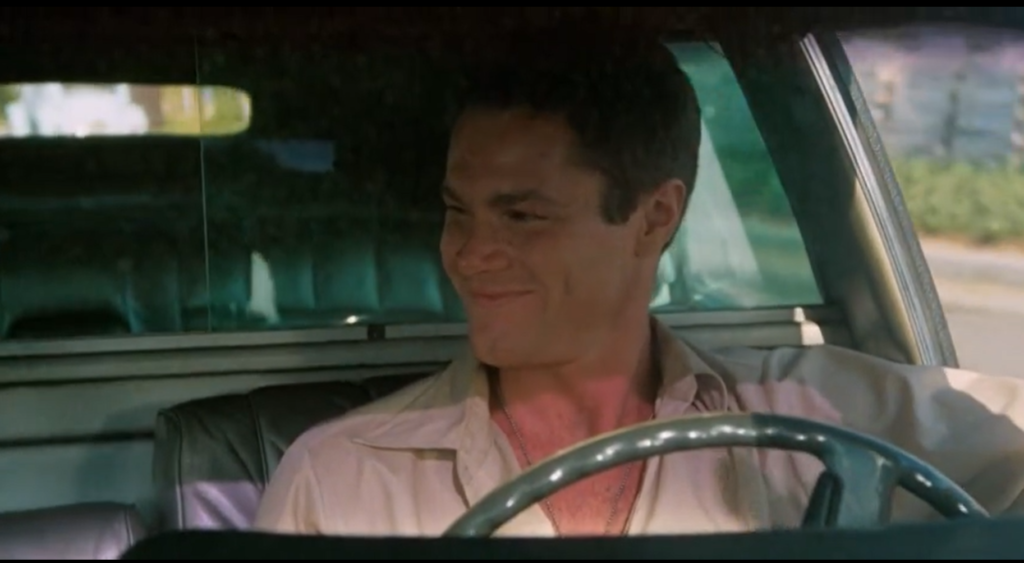
- Stunning cinematography

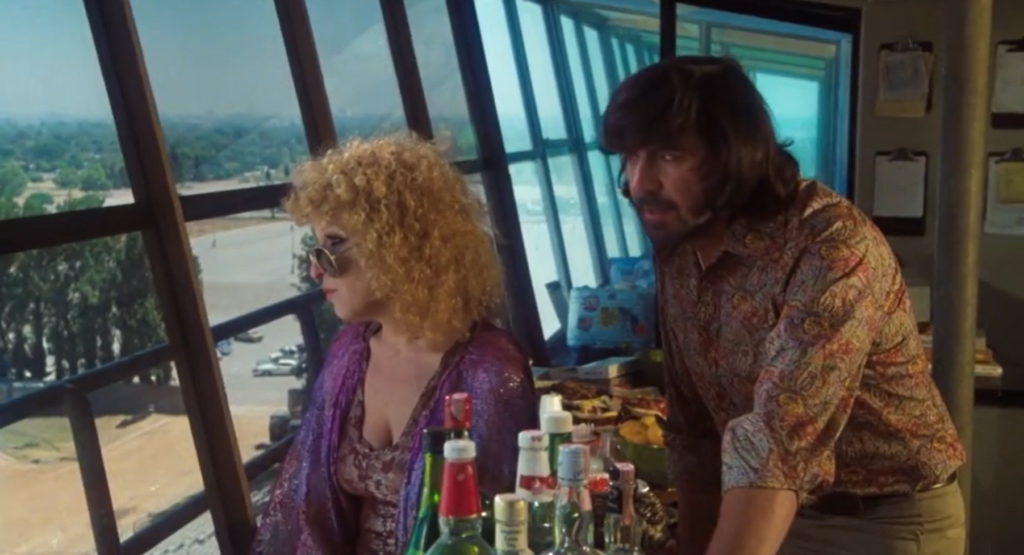
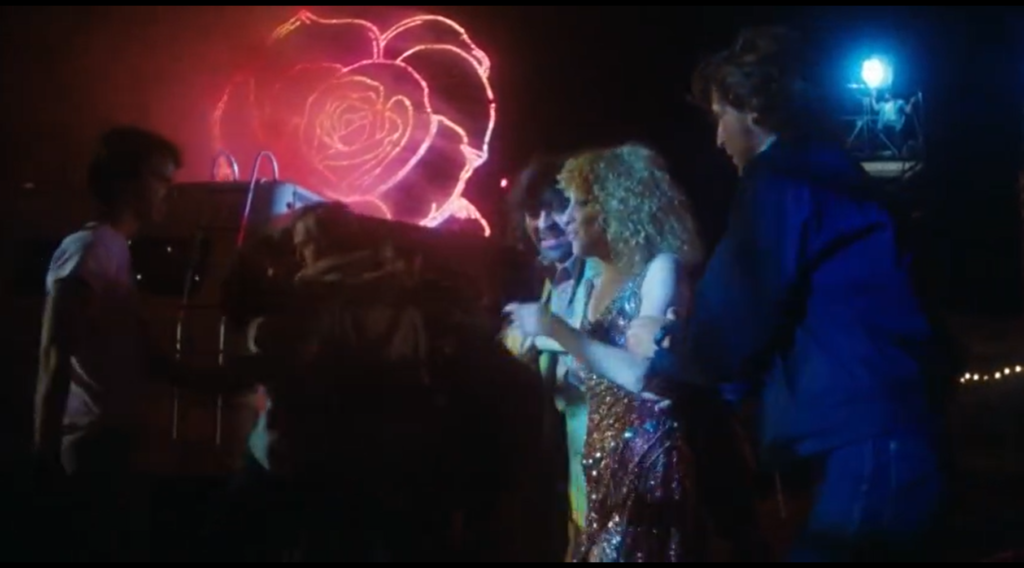
- Fine location shooting
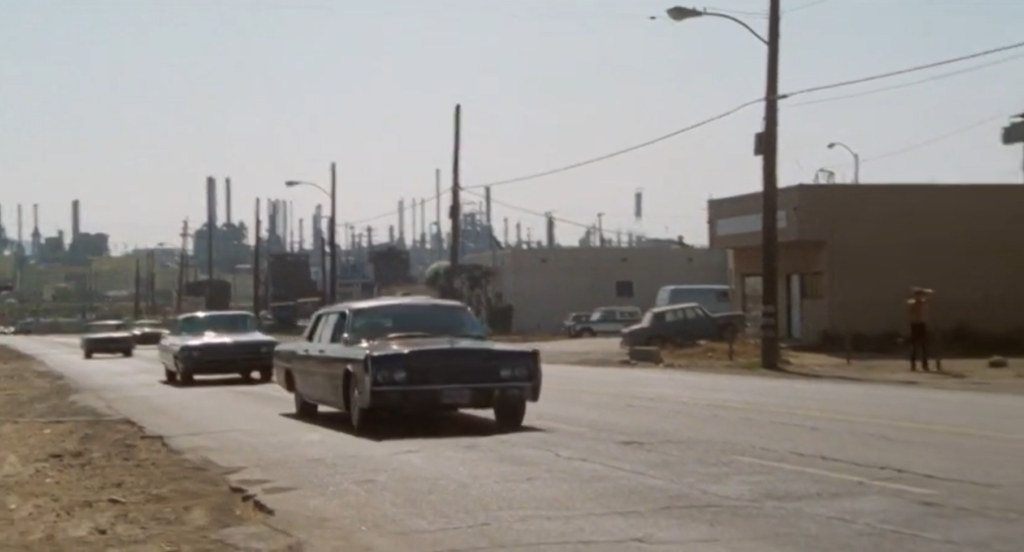
- Many gut-wrenching moments
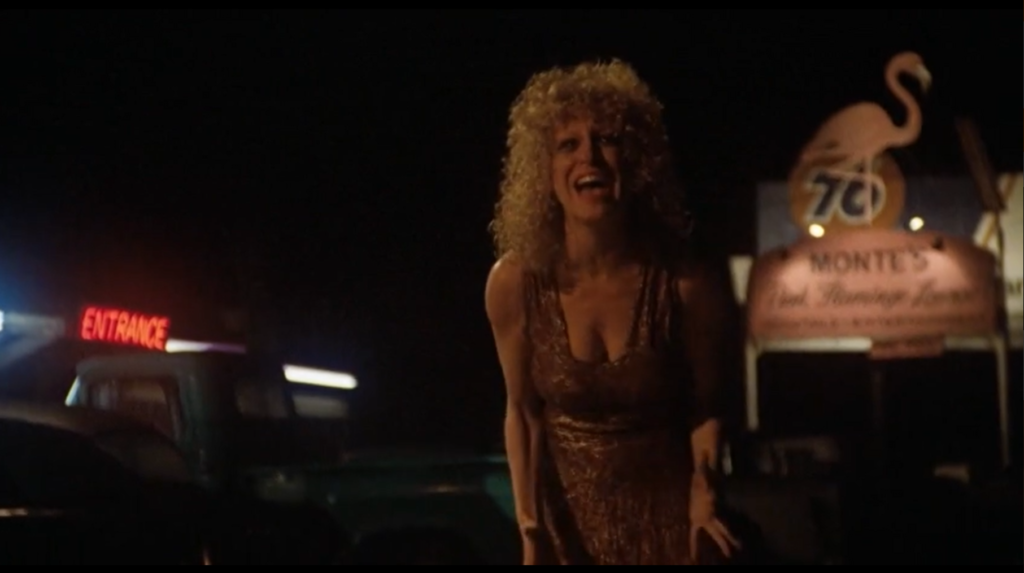
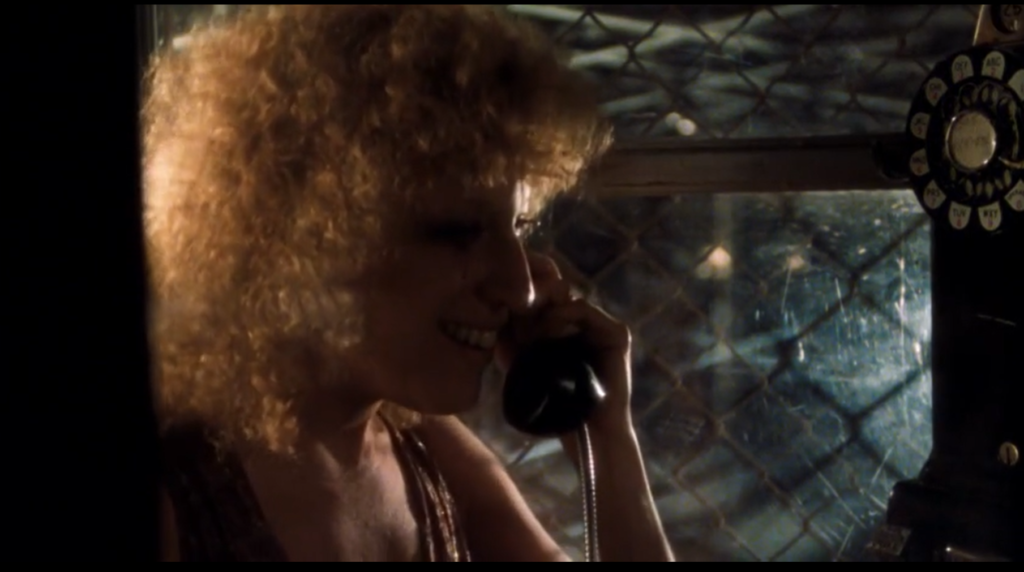
- Powerful concert sequences
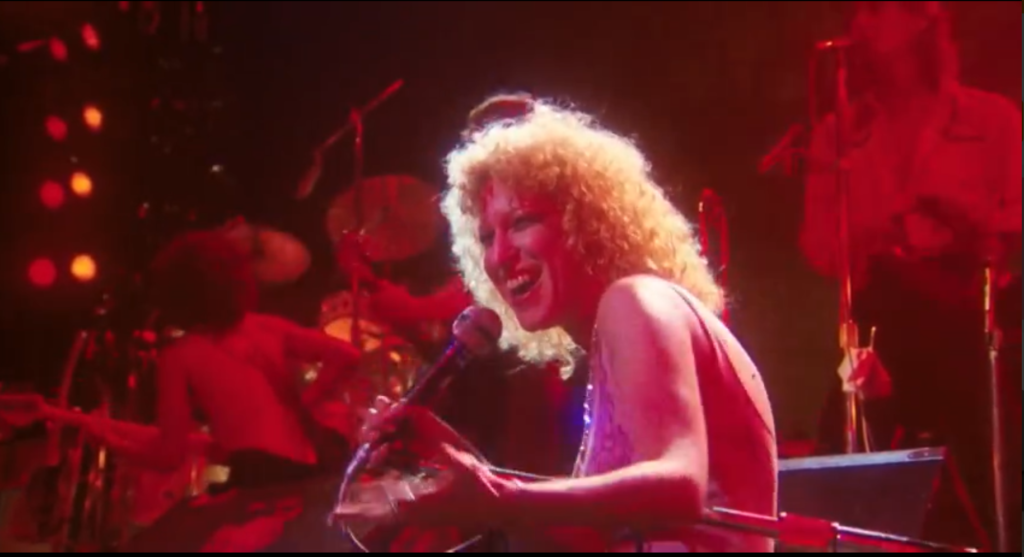
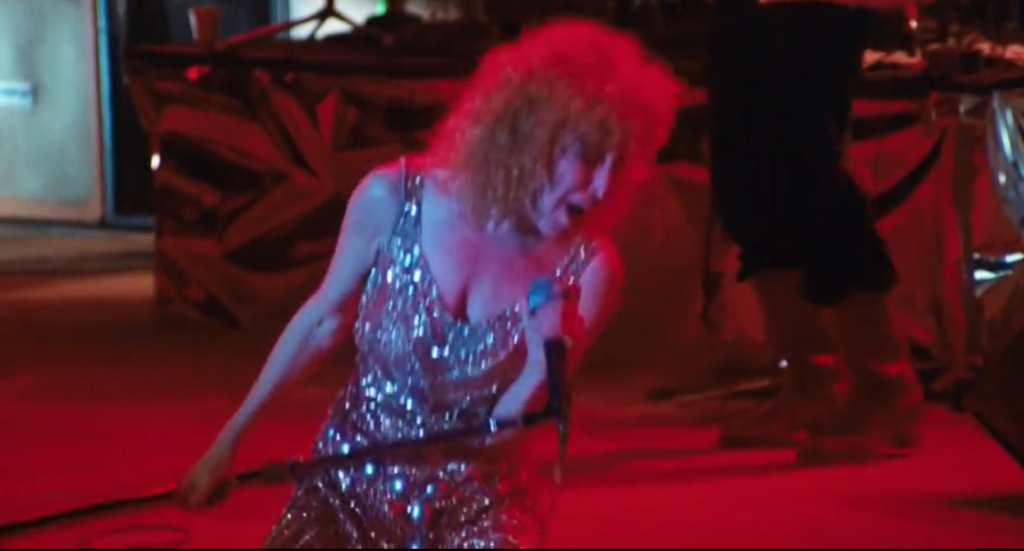
Must See?
Yes, for Midler’s Oscar-nominated performance and as an all-around powerful show.
Categories
- Noteworthy Performance(s)
- Oscar Winner or Nominee
Links:
|
One thought on “Rose, The (1979)”
Must-see – for the performances by Midler / Forrest / Bates, Bo Goldman’s script, Vilmos Zsigmond’s photography (aided by Conrad Hall, Jan Kiesser, László Kovács, David Myers, Owen Roizman, Haskell Wexler, etc., for the concert sequences), and for Rydell’s sharp / sensitive direction.
I agree that Peary’s assessment is too harsh, esp. “this film is for masochists only”. True – aside from the singing sequences and the few scenes in which Midler is allowed to relax (i.e., the hotel scene with Forrest, the drag bar, etc.) – it’s a tough watch.
But I don’t think it’s a simple matter of “watch[ing] one awful thing after another happen to Midler: not only is she self-destructive, but everyone she trusts lets her down, walks out on her, or exploits her.”
What Peary doesn’t seem to take into consideration is The Rose’s responsibility in her own situation. She is someone who has allowed herself to fall into certain trappings of stardom. Because she has failed to look around herself and realize that there are plenty of other adults who had less-than-ideal childhoods (i.e., didn’t get enough love – or even worse), she has embraced arrested development.
She is also very talented – and she knows that; she sees the crowds that basically hunger for her talent. So she thinks she can use that talent as a ‘weapon’, to get what she wants. She does not handle her career with any semblance of grace. You can’t be demanding or tough-as-nails 24/7 and then expect your handlers to always treat you with kid gloves. In a way, Bates’ Rudge doesn’t seem to have any choice but to keep on feeding her to her fans as much as possible. (That’s not said in defense of Rudge; he’s not much of a people-person, unless he’s negotiating for money.)
And I also don’t mean to beat up on The Rose as a character, either. There are moments when it is clear she is making grabs for a saner life – in balance with her career. But, in wrestling with her ego, it’s unfortunately her ego that wins out.
I don’t agree that “not all scenes work as well as others”; I feel Goldman’s script (apparently a largely revised working of what was started by Bill Kerby) is on-the-money, covering all of the salient points of The Rose’s decline.
One of the film’s best features: the songs. Often in a film like this, the songs are either on the mediocre side or only have a few standouts. Here, each one contributes to the film’s success.
It’s certainly odd that, following this film, Midler never really had another role throughout her career that allowed her to explore her dramatic potential, as The Rose did. (~ although there are many who were impressed by her work in the tv-movie version of ‘Gypsy’.)
The Criterion blu-ray contains three valuable interviews: with Midler, Rydell and Zsigmond.